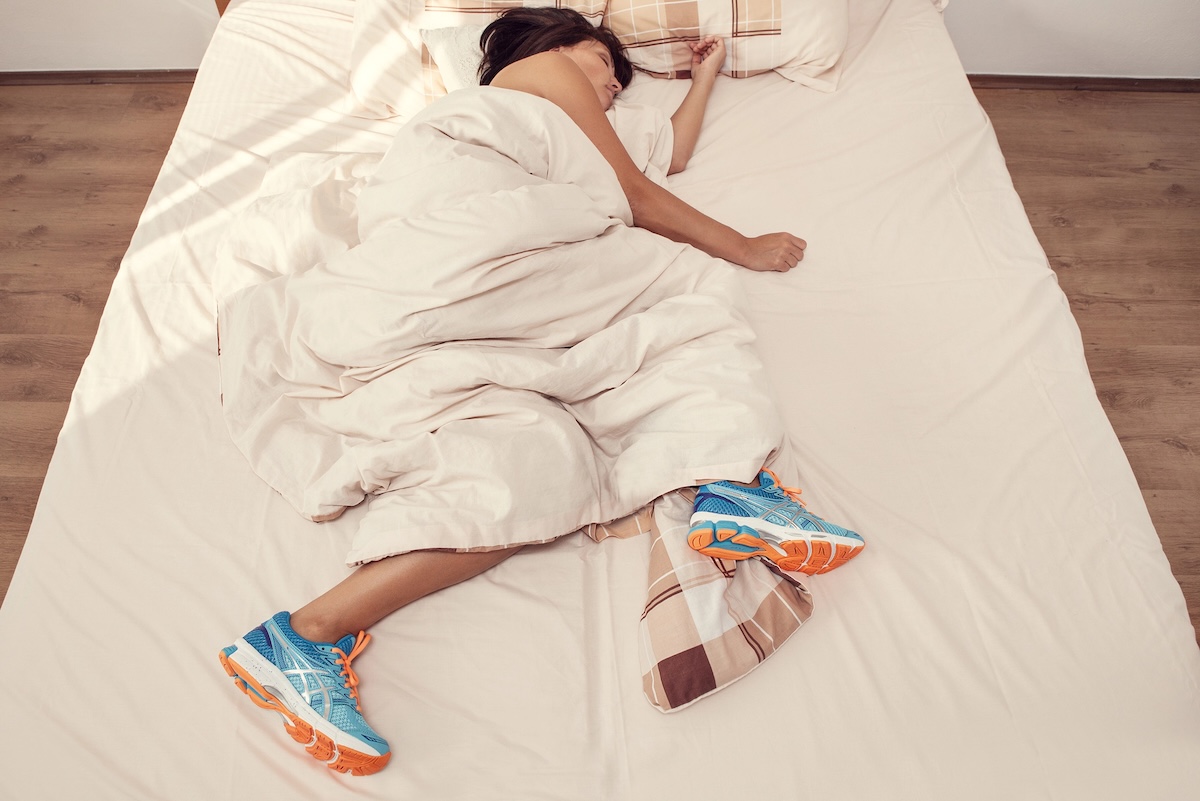
Our minds are amazing thought-generating machines! During the day, thoughts pile up like rush hour commuters, and at night? It’s a full-on marathon in your brain. Trying to find peace feels like a never-ending chase.
Let’s talk about something that feels more like a treat than a necessity: good sleep. You know that wonderfully fluffy brain feeling when you wake up refreshed? That’s the goal!
Sleep’s a bit like that song stuck in your head – the harder you try to remember it, the more elusive it becomes. Then, bam! It hits you at 3 a.m. The good news is that our bodies can help calm our racing minds, and running is a fantastic way to do just that.
### When Sleep Won’t Come
Sleep deprivation is like slowly suffocating a room – you don’t notice it at first, then suddenly you’re stumbling around. Your focus vanishes, your mood plummets, you’re irritable, and your memory feels like Swiss cheese. Your body, much less subtle than your brain, screams for help.
Beyond exhaustion and grogginess, sleeplessness wreaks havoc. Simple tasks, like reading a book or watching TV without hitting rewind, become impossible. Your emotions get amplified and harder to control. And the worst part? Your inner negativity dial is stuck on full blast, turning every little worry into a major crisis. You’re not just tired; you’re emotionally exhausted and can’t handle life’s little curveballs.
This lack of sleep creates a terrible cycle: the more tired you are, the more stressed you become. Stress equals more cortisol, which means less sleep—a biological loop that clearly shows something’s wrong.
Sound familiar? Those days when you’re going through the motions, your body’s present but your mind is checked out – or worse, present and useless? Making decisions becomes a monumental task, even choosing between coffee types seems a strategic battle. Your creativity? Long gone.
### Can Running Really Help You Sleep?
So, does running actually improve sleep? Absolutely! Tons of studies say so.
It seems counterintuitive: we tire ourselves out to rest better. Running is the perfect way to do that. You burn energy, work your muscles, and put your body under some good stress. But running and sleep are amazing buddies, creating a positive feedback loop that benefits your brain.
Running boosts serotonin, regulates your sleep cycle, lowers cortisol, and helps regulate body temperature – all vital for quality sleep.
Studies show that regular aerobic exercise, including running, helps people fall asleep faster and sleep more soundly. You don’t need marathons; even 30 minutes, three or four times a week, makes a difference.
Exercise raises your temperature, and the drop a few hours later signals to your body that it’s bedtime. Running’s also a natural stress reliever; you release endorphins, and importantly, disconnect from those pesky never-ending thoughts. Less stress equals a calmer mind at bedtime—perfect for relaxation.
It’s like your body telling your brain: “I got this, you can chill now!”
### Simple Tricks to Slow Down (And No, You Don’t Have to Count Miles Instead of Sheep)
Running is your sleep superhero, but here are some other simple habits to help you drift off peacefully.
– **Stick to a schedule:** Go to bed and wake up around the same time every day, even weekends. It’s monotonous, but your body loves routine. Think of it as setting the rhythm for your internal clock.
– **Digital detox:** An hour before bed, ditch the screens. Blue light tricks your brain into thinking it’s daytime. Read a book, listen to calming music (skip the death metal!), or do some gentle stretches. Tell your brain it’s relaxation time.
– **Create a sleep sanctuary:** Make your bedroom dark, cool, and quiet. No bright lights, no annoying sounds. Your bed is for sleep (and… you know… other things). Keep TVs and screens out; just your alarm and maybe a book (not a Stephen King thriller!).
– **Mind your food and drinks:** Coffee, tea, sugary drinks, and alcohol—especially late at night—are sleep saboteurs. Heavy meals before bed are also a bad idea unless you enjoy nighttime dragon-slaying.
– **Run smart:** Morning or late afternoon runs are best. Intense evening runs might keep you awake.
– **Write it down:** If your mind’s racing, become its scribe. Writing down your thoughts often removes their power. Jot down how you feel, what’s on your mind. Getting it out of your head shrinks those thoughts.
### Find Your Rhythm
Good sleep and running aren’t rivals; they’re a team. Sleep better, run better. Run better, sleep better.
It’s a beautiful cycle: Run better → Sleep better → Think better → Run better.
Better sleep means sharper focus, better mood, improved emotional control, and fewer negative thoughts because your mind is stronger.
Running is a big help, but sleep is complicated. Paying attention to the small things—along with your runs—makes a huge difference between a night of counting sheep and a night of deep, refreshing rest.
There’s a time for running and a time to rest. Learning the difference is tough but incredibly liberating.
Real rest is the best fuel for any runner—it’s not a luxury; it’s the foundation. And with that solid foundation, even your internal negativity might turn into something upbeat.